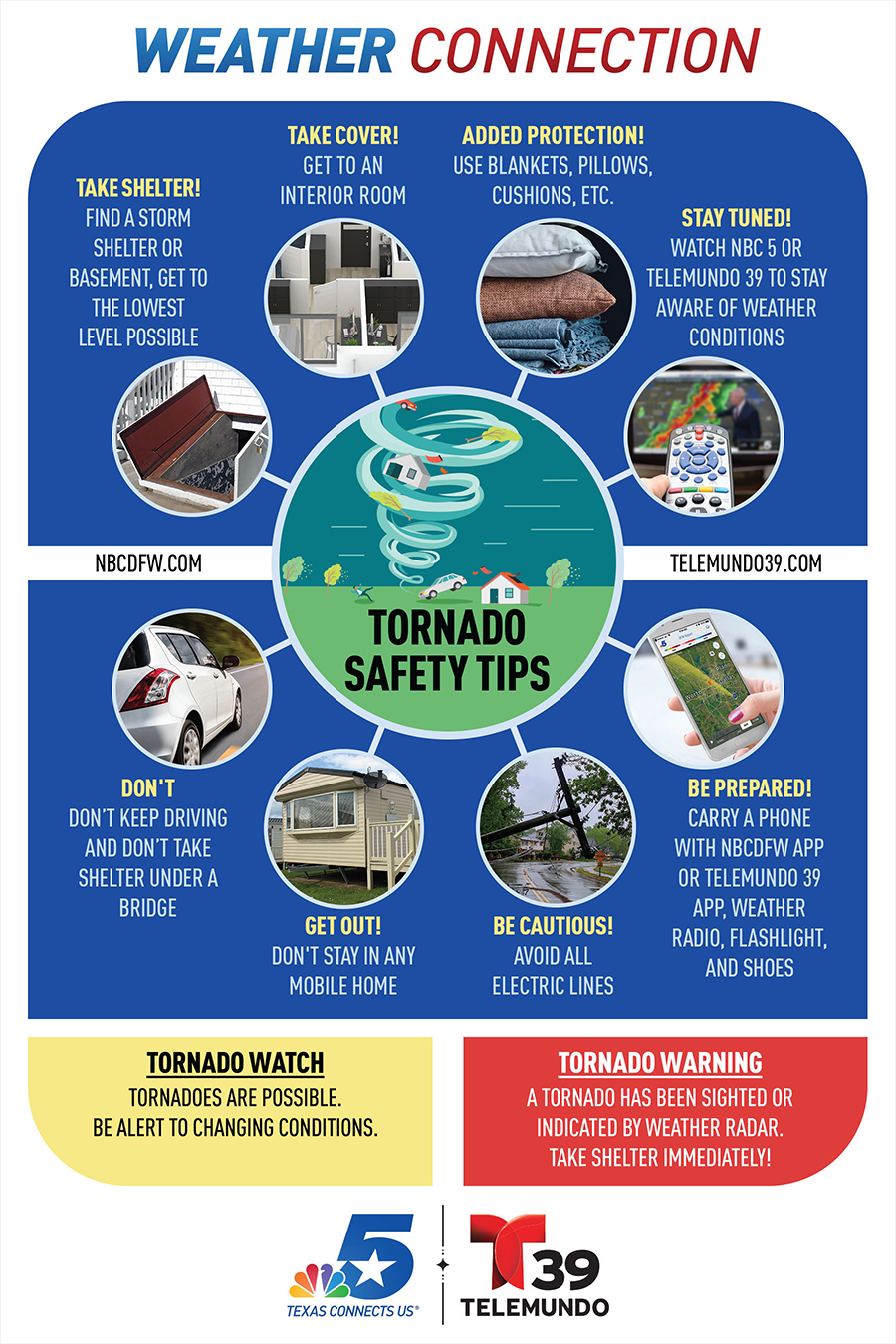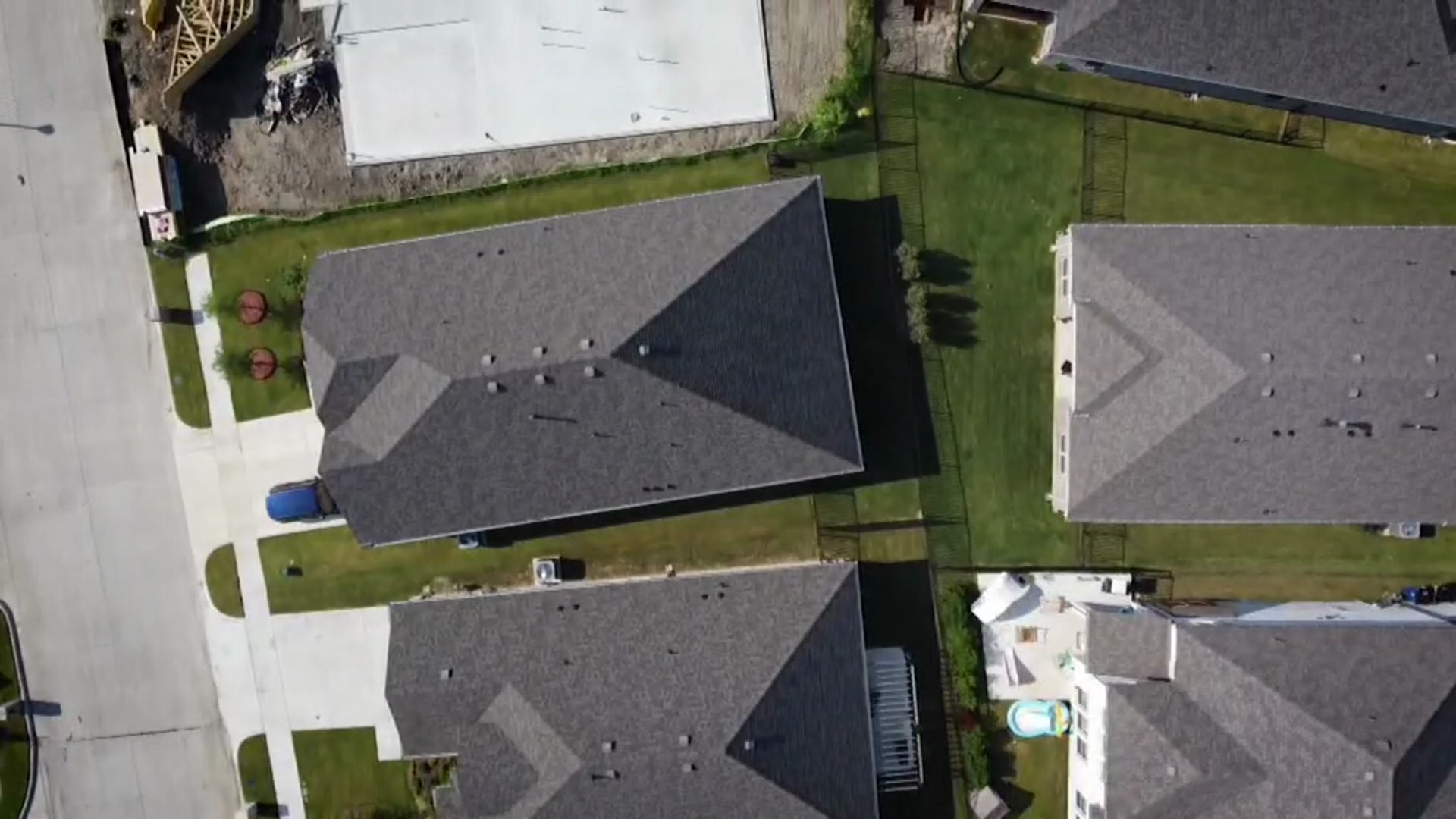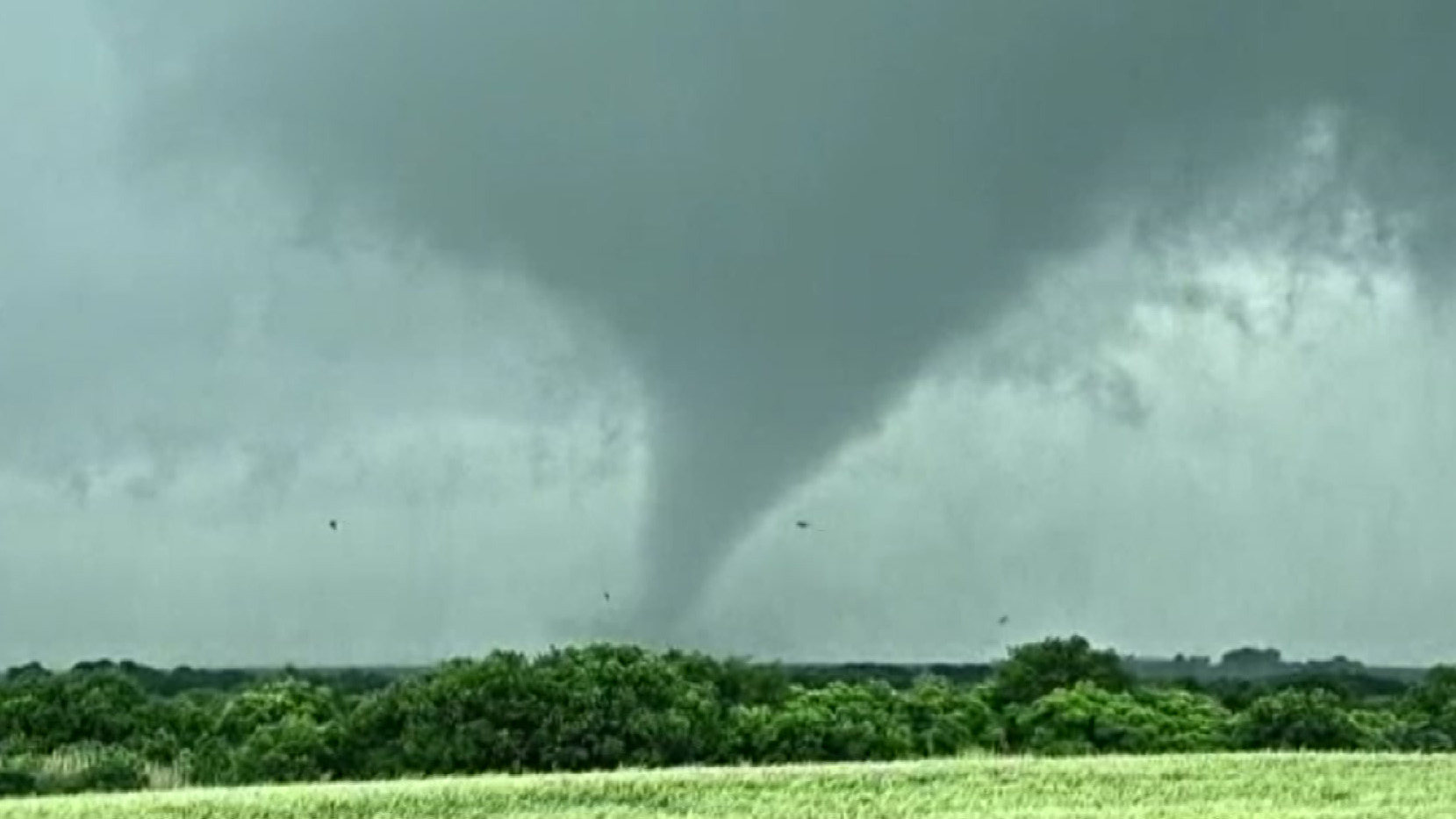It's spring and that means the threat of severe weather and in North Texas that can mean everything from flooding rain and lightning to damaging hail and high winds -- even tornadoes.
Already March and April have provided an active spring storm season and whether you're new to North Texas or lived here all your life, NBC 5’s Weather Experts will help keep you and your loved ones safe during storms.
WHAT DOES IT MEAN TO BE 'WEATHER AWARE'
You don't have to be a meteorologist to know what's going on with the atmosphere but you need to stay "weather aware."
Get top local stories in DFW delivered to you every morning. >Sign up for NBC DFW's News Headlines newsletter.
This means having a way to stay updated, like a weather radio or the NBC DFW app. With severe weather push alerts turned on, you will get information the minute the National Weather Service issues a watch or warning for your current location, or any location you choose, like your home.
KNOW YOUR WEATHER TERMINOLOGY
The most important thing during severe storm season is understanding weather terminology.
A Tornado Watch means tornadoes are possible, and that you need to be alert to changing weather conditions.
A Tornado Warning means a tornado has been sighted by trained storm spotters or indicated on weather radar. In this case, you should take shelter immediately.
TORNADO SAFETY TIPS
Besides being aware, it's important to have a plan for you and your family, whether you're at home, work or school.
If there is a tornado warning in your area, you need to know where to go to safely wait out the storm.
Get to the lowest level of your home and go to an interior room away from windows -- put as many walls between you and the outside of your home as possible. Use blankets, pillows or cushions to shield yourself from possible debris. Watch NBC 5 or Telemundo 39 on your NBCDFW app so that you know when you are in the clear from severe weather.
If you are in a high-rise building or apartment complex, get to the lowest floor possible away from windows.
If you are in a manufactured or mobile home, get out, even mobile homes that are tied down offer little protection from tornadoes. Identify a sturdy structure you can get to quickly where you can ride out the storm. If it's not possible to get to a safe shelter, you should lie in a low spot or ditch and cover your head with your hands.
If you’re in a vehicle with a tornado approaching, don't keep driving and don't take shelter under a bridge or overpass. Get to a shelter and if that's not an option abandon your vehicle and hide in a low-lying area like a ditch or ravine.
CONTINUING WEATHER COVERAGE
Stay up to date with the latest weather forecast from NBC 5's team of Weather Experts by clicking here or by watching the video below.

THINK ABOUT CREATING AN EMERGENCY KIT
On top of knowing where to go for safety and make sure supply kits are stocked for possible aftermath.
FEMA has made a list of basic emergency supplies that should be on hand. The kit includes a first aid kit, battery-operated radios, a flashlight, cell phone chargers, at least three days of non-perishable food with a can opener, and one gallon of water per person per day for at least three days.



